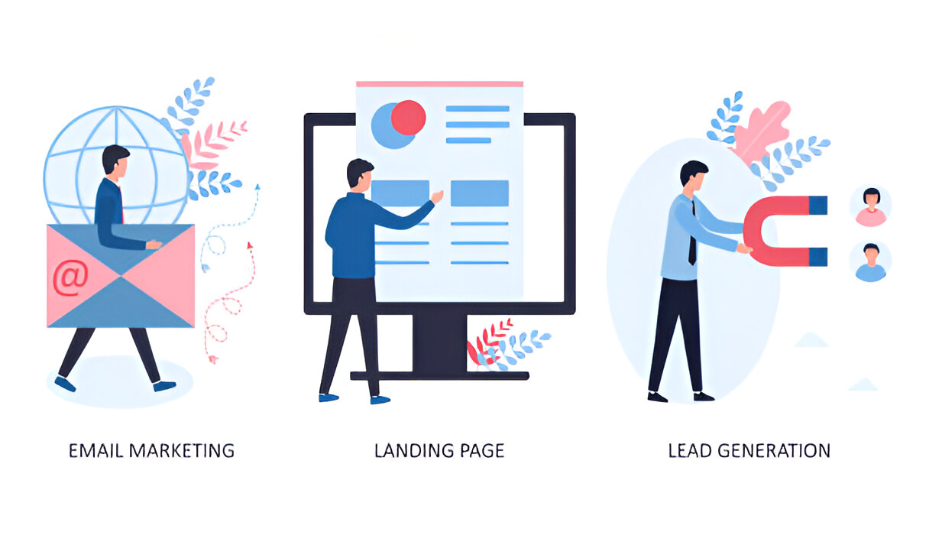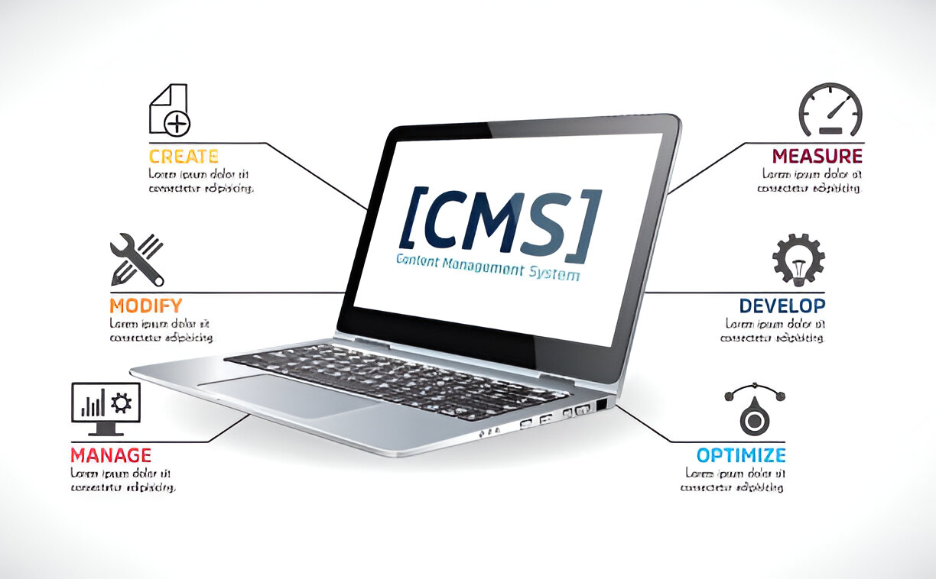What Are the Key Strategies for Unlocking SEO Success

Introduction
Search Engine Optimization (SEO) is the process of optimizing your website to improve its visibility in search engine results pages (SERPs). At RISExDigital, we understand the crucial role SEO plays in enhancing your site’s content and structure. By strategically optimizing your website, we help you attract more organic traffic from search engines like Google and Bing.
The key role of SEO is to make your website more accessible and relevant to search bots. These automated programs crawl your site, indexing content to determine its relevance for specific search queries. By optimizing for these bots, RISExDigital ensures that your website appears higher in SERP rankings, helping you achieve:
- Increased organic traffic
- Improved brand visibility
- Enhanced customer engagement
In the world of ecommerce, effective SEO strategies can lead to increased revenue and a stronger online presence. RISExDigital also specializes in international SEO best practices, helping you target global markets and drive international online sales.
Understanding the Basics of Search Engine Optimization (SEO)
Search engine optimization (SEO) is a strategic process aimed at enhancing a website’s visibility on search engines. By optimizing various elements of your site, SEO helps you achieve higher rankings in search engine results pages (SERPs). This increases organic traffic, bringing more visitors to your website without the need for paid advertising.
SEO encompasses various techniques and practices:
- On-Page SEO: Involves optimizing individual pages to rank higher. This includes updating meta tags, header tags, and incorporating high-quality content.
- Off-Page SEO: Focuses on external factors like backlinks from reputable sites.
- Technical SEO: Ensures that your website meets the technical requirements of search engines. This includes improving site speed, mobile-friendliness, and secure connections (HTTPS).
Significance in the Digital Landscape
In today’s digital age, having a robust online presence is crucial. Effective SEO not only drives organic traffic but also enhances brand credibility and trust. Businesses leveraging SEO can significantly improve their customer acquisition strategies by making their products or services easily discoverable.
The Relationship Between Keywords, Website Content, and SEO Performance
Keywords play a pivotal role in SEO. They are the phrases and terms users type into search engines when looking for information. Integrating relevant keywords into your website content helps search engines understand what your site is about, thereby improving your chances of ranking higher.
Key elements to consider:
- Keyword Research: Identify high-volume and low-competition keywords relevant to your business.
- Content Creation: Develop informative and engaging content that naturally incorporates these keywords.
- Content Optimization: Regularly update existing content to align with current keyword trends and search engine algorithms.
High-quality website content is the backbone of successful SEO. It provides value to users while signaling relevance to search engines. Optimized content that meets user intent not only improves rankings but also enhances user experience, encouraging longer site visits and higher engagement rates.
The Role of Search Bots and How They Impact SEO
Search bots, also known as web crawlers or spiders, are vital parts of search engines. These automated programs systematically browse the internet, indexing website content to be retrieved and ranked in search engine results pages (SERPs). Understanding their role is crucial for effective search engine optimization.
How Search Bots Browse and Organize Websites
Search bots have two main jobs when it comes to websites:
- Crawling: They explore the web by following links, finding new pages and checking for updates on existing ones. This includes both links within a website (internal links) and links leading to other sites (external links).
- Indexing: After crawling a page, its content is stored in a large database called an index. This index allows search engines to quickly find relevant information when users search for specific keywords or phrases.
The way search bots understand your site has a big impact on your SEO performance. Websites that are well-structured, easy to navigate, and optimized for keywords make it simpler for bots to crawl and index your content.
How Search Bots Affect Your Website’s Visibility
The effectiveness of search bots in crawling and indexing directly impacts how visible your website is in search results:
- Crawlability: Websites that are easy for bots to navigate tend to get indexed more thoroughly.
- Relevance: Content that closely matches targeted keywords has a better chance of ranking higher.
- Freshness: Regularly updating your content signals to search bots that your site is active and can lead to better visibility.
Making sure your site is well-structured not only helps with ranking but also prevents issues like having duplicate content or broken links, which can hurt your SEO efforts.
Best Practices for International SEO
If you’re looking to expand your online presence globally and attract international customers, it’s important to implement international SEO best practices:
- Multilingual Content: Providing content in multiple languages allows you to cater to diverse audiences.
- Localized Keywords: Researching and using keywords that are specific to each region or country you’re targeting helps improve relevance.
- Geo-targeting: Using hreflang tags in your website’s code helps search engines understand which language version of your site is intended for which audience.
By following these strategies, you can ensure that search bots are able to effectively rank your site across different regions, maximizing your online sales opportunities on a global scale.
The Step-by-Step Process of Successful SEO Campaigns
Executing a successful SEO campaign involves several key stages that collectively enhance your website’s visibility and performance on search engines. Each step is crucial in ensuring your site ranks well organically, attracts more traffic, and ultimately drives more conversions.
- Conducting a Comprehensive SEO Audit
The first stage in any effective SEO campaign is conducting a comprehensive SEO audit. This audit evaluates your website’s current performance and identifies areas that need optimization. Key elements to assess during the audit include:
- Website Speed: Ensure your pages load quickly to reduce bounce rates.
- Mobile-Friendliness: Verify that your site is optimized for mobile devices.
- Content Quality: Evaluate the relevance and originality of your content.
- Backlink Profile: Analyze the quality and quantity of inbound links.
An SEO audit highlights technical issues that may be hindering your site’s performance, offering a clear roadmap for improvement.
- Implementing On-Page and Off-Page SEO Strategies
Once the audit is complete, the next step involves implementing on-page and off-page SEO strategies. These efforts help improve keyword rankings and boost organic visibility.
On-Page SEO
On-page SEO focuses on optimizing elements within your website:
- Keyword Optimization: Integrate relevant keywords naturally into titles, headings, meta descriptions, and body content.
- Content Creation: Produce high-quality, engaging content that addresses user intent.
- Internal Linking: Create a logical structure with internal links to improve navigation.
Off-Page SEO
Off-page SEO involves actions taken outside of your website to impact its rankings:
- Backlink Building: Acquire high-quality backlinks from reputable sources to increase domain authority.
- Social Media Engagement: Promote your content on social media platforms to drive traffic and generate backlinks.
- Guest Blogging: Contribute to industry-related blogs to gain exposure and backlinks.

3. Enhancing Website Technical Elements
Technical improvements are vital for better crawlability and indexation by search engines. These enhancements ensure search bots can effectively navigate and understand your site’s structure.
Key technical elements to optimize include:
- XML Sitemaps: Create an XML sitemap to guide search bots through your site’s important pages.
- Robots.txt File: Configure the robots.txt file to control which pages search bots can crawl.
- Structured Data Markup: Implement schema markup to provide additional context about your content, helping search engines deliver richer results.
By addressing these technical aspects, you make it easier for search engines to index your site accurately, which improves overall visibility in search results.
These steps form the backbone of a successful SEO campaign, laying the groundwork for sustained growth in organic traffic and online presence.
Measuring Success: Monitoring, Tracking, and Adapting Your SEO Efforts
Ongoing monitoring and tracking play a crucial role in measuring the success of SEO initiatives. To achieve ecommerce successes, you must constantly evaluate the performance of your SEO strategies through various metrics.
Key Performance Indicators for SEO
- Organic Traffic: The number of visitors who arrive at your site through search engine results.
- Keyword Rankings: The position of your targeted keywords in search engine results pages (SERPs).
- Bounce Rate: The percentage of visitors who leave your site after viewing only one page.
- Conversion Rate: The percentage of visitors who complete a desired action, such as making a purchase or filling out a form.
Utilizing Website Analytics Data
Website analytics tools like Google Analytics provide invaluable insights into your site’s performance. These tools help you:
- Track User Behavior: Understand how users navigate your site, which pages they visit most frequently, and where they drop off.
- Identify High-Performing Content: Discover which content pieces drive the most traffic and engagement, allowing you to replicate their success.
Optimizing for Conversions
Data from website analytics can be used to make informed decisions that optimize for conversions. For instance:
- A/B Testing: Experiment with different versions of landing pages to determine which one converts better.
- User Experience Improvements: Enhance site navigation and load times to reduce bounce rates and improve user satisfaction.
Continuous Adaptation
SEO is not a one-time effort but an ongoing process. Regularly updating your strategies based on analytics data ensures that your SEO efforts remain effective and aligned with current trends.
Investing time in monitoring, tracking, and adapting your SEO tactics helps maintain high visibility in search results, driving sustained online growth.
Staying Ahead of the Game: The Future of SEO
Emerging trends and technologies are continuously reshaping the landscape of SEO. Two significant areas driving this evolution are voice search optimization and mobile responsiveness.
Voice Search Optimization
Voice search is becoming increasingly prevalent with the rise of smart devices like Amazon’s Alexa, Google Assistant, and Apple’s Siri. Optimizing for voice search involves:
- Natural Language Processing (NLP): Voice searches are more conversational. Incorporating long-tail keywords and natural phrases into your content helps capture these queries.
- Featured Snippets: Structuring your content to answer common questions directly can increase your chances of appearing in featured snippets, which voice assistants often read aloud.
Mobile Responsiveness
With mobile devices accounting for over half of global web traffic, ensuring your website is mobile-friendly is critical. Key aspects include:
- Responsive Design: Your website should adapt seamlessly to different screen sizes and resolutions.
- Page Speed: Faster loading times on mobile devices improve user experience and reduce bounce rates.
- Mobile-first Indexing: Google predominantly uses the mobile version of a site for indexing and ranking, making mobile optimization essential.
Embracing these trends ensures that your SEO strategy remains effective in an ever-changing digital environment.

Conclusion
SEO is a dynamic field that demands continuous adaptation and strategic insight. As search engine algorithms evolve, so must your approach to remain competitive in search rankings. At RISExDigital, we specialize in crafting tailored SEO strategies that align with the latest trends and technologies to maximize your online success.
Key takeaways from this article include:
- Understanding the Basics: Grasping the fundamental principles of SEO and its critical role.
- Role of Search Bots: Recognizing how search bots crawl and index your site, impacting your SEO performance.
- Successful SEO Campaigns: Following a structured approach to enhance your website’s visibility.
- Measuring Success: Using analytics to refine and optimize your SEO efforts.
- Staying Ahead: Keeping up with emerging trends like voice search optimization and mobile responsiveness.
Implement these insights to build a robust SEO strategy that drives sustained growth and enhances your online presence. For personalized SEO solutions and to discuss how RISExDigital can help you achieve your goals, contact us today.




